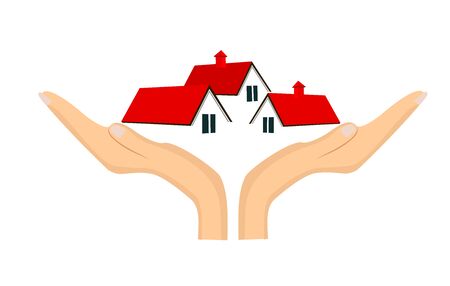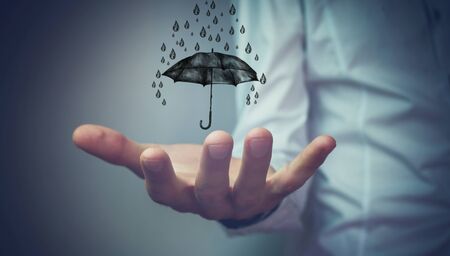Understanding Natural Disaster Risks for Renters
When you’re renting a home or apartment in the United States, it’s easy to overlook the impact that natural disasters can have on your living situation. But the truth is, every region in the country faces its own unique set of risks—from hurricanes along the Gulf Coast and Atlantic seaboard, to wildfires in California, tornadoes across the Midwest, and earthquakes in the West. Even flooding can affect areas you might not expect. As a renter, it’s important to be aware of which natural disasters are most likely to occur where you live. Understanding these local risks isn’t just about peace of mind—it can help you make smarter decisions about protecting your personal belongings and your financial well-being. Many renters mistakenly assume their landlord’s insurance will cover everything, but that’s often not the case when disaster strikes. Taking time to explore the most common hazards in your area is the first step toward making sure you’re truly prepared.
What Standard Renters Insurance Covers
If you’re new to renting or just starting to look into renters insurance, it’s important to know exactly what a standard policy covers—especially when it comes to natural disasters. Most people assume that once they have renters insurance, everything in their apartment is protected no matter what happens. But that’s not always the case. Here’s a clear breakdown of what’s usually covered and what’s not, so you can see where natural disaster protection fits in.
Typical Coverage in Standard Renters Insurance
| Covered Events | Not Covered (Usually Excluded) |
|---|---|
| Fire and smoke damage | Floods |
| Theft or burglary | Earthquakes |
| Vandalism | Landslides/mudslides |
| Some types of water damage (like burst pipes) | Sinkholes (in most states) |
| Windstorms and hail (sometimes limited) | Nuclear hazards/war/intentional acts |
| Liability for injuries on your property | |
| Loss of use (help with living expenses if your home becomes uninhabitable due to a covered event) |
How Natural Disasters Fit In
When it comes to natural disasters like earthquakes, floods, or hurricanes, standard renters insurance doesn’t always have your back. For example, if you live in California and worry about earthquakes, or in Florida where hurricanes are common, you’ll need extra coverage specific to those risks. Floods are almost never covered by standard policies—you’d need a separate flood insurance policy, often available through the National Flood Insurance Program (NFIP).
A Real-Life Example:
If a fire breaks out in your apartment building and destroys your belongings, standard renters insurance will likely help pay to replace them. But if a river overflows and floods your place during a big storm, you’re on your own unless you bought separate flood coverage.
Understanding these differences is key before disaster strikes. It helps you know whether you’re truly protected or if you should look into additional coverage based on where you live and what risks are most likely in your area.

3. Gaps in Coverage: Common Exclusions
One of the most important things for renters to understand is that basic renters insurance doesn’t cover every kind of natural disaster. There are some major gaps that could leave you unprotected if you’re not careful. For example, most standard renters policies specifically exclude damage caused by floods and earthquakes. In other words, if your apartment gets flooded because of heavy rain, or if an earthquake shakes up your belongings, your basic policy probably won’t help you replace your stuff.
This matters a lot, especially in areas where certain disasters are more likely. If you live somewhere like California, earthquakes are a real risk. Along the Gulf Coast or near big rivers, flooding can happen more often than you might think. Insurance companies see these events as higher risk, so they require separate coverage for them—like a special flood insurance policy or earthquake rider. Without these add-ons, you might be facing huge out-of-pocket costs to repair or replace your things after a disaster.
Understanding these exclusions is key for renters who want to feel truly protected. It’s easy to assume “insurance has me covered,” but unless you read the fine print and ask questions, you could be surprised by what isn’t included. Taking a little time now to check your policy and consider extra coverage for local risks can save you a lot of headaches—and money—if disaster strikes.
4. When Do You Need Extra Natural Disaster Coverage?
As a renter in the U.S., knowing when you need extra natural disaster coverage can make a huge difference if disaster strikes. Not every region faces the same risks, and standard renters insurance often excludes certain disasters like floods or earthquakes. So, how do you know if you should get additional coverage? Here are some key scenarios and locations where extra protection is important:
High-Risk Locations
If you live in an area known for specific natural disasters, extra coverage is often necessary. For example, renters in California might want earthquake insurance, while those near the Gulf Coast or along major rivers should consider flood insurance.
| Region/State | Common Natural Disasters | Recommended Extra Coverage |
|---|---|---|
| California | Earthquakes, wildfires | Earthquake insurance, wildfire endorsements |
| Florida, Gulf Coast | Hurricanes, flooding | Flood insurance, hurricane/windstorm riders |
| Midwest (Tornado Alley) | Tornadoes, severe storms | Windstorm endorsements |
| Northeast | Winter storms, flooding | Flood insurance, ice dam coverage |
Lifestyle and Housing Factors
Your living situation also plays a role in whether you need more coverage. If your apartment is on a ground floor or basement level, your belongings are at higher risk during floods. Similarly, older buildings may not be as resilient to earthquakes or storms as newer constructions built to modern codes.
Rental Agreement Requirements
Sometimes landlords require tenants to have certain types of insurance, especially if their property is in a disaster-prone area. Always check your lease and talk with your landlord about what’s expected—and what’s wise—to protect yourself financially.
Peace of Mind for Unpredictable Events
Ultimately, if you’re unsure about your risks but want peace of mind, consider talking to a local insurance agent. They can help you evaluate your location and recommend the right add-ons so you’re not left out in the cold—or the flood—when something unexpected happens.
5. How to Get the Right Coverage
Finding the right natural disaster coverage as a renter in the U.S. can feel overwhelming, but taking it step by step makes it manageable. Here’s a guide to help you identify what you need, shop smartly for extra protection, and make sure you’re asking your insurance agent all the important questions.
Figure Out Your Specific Needs
Start by thinking about where you live and what natural disasters are most likely to happen there. For example, if you’re in California, earthquake coverage is important, while renters in Florida or Texas should consider flood and hurricane protection. Make a list of your belongings and estimate their value—this will help you determine how much personal property coverage you actually need.
Shop Around for Extra Coverage
Most basic renters insurance policies do not include coverage for floods or earthquakes. If your area is at risk, look for supplemental policies or endorsements that add these protections. Compare quotes from different insurance companies, paying attention not just to the price but also to what is covered and excluded. Some insurers offer bundle discounts if you combine renters insurance with auto or other policies.
Ask Your Insurance Agent the Right Questions
- Does my policy cover natural disasters common in my area?
- Is there a separate deductible for disasters like floods or earthquakes?
- How much would I get for lost or damaged items—actual cash value or replacement cost?
- If my rental becomes unlivable after a disaster, does my policy cover additional living expenses?
- Are there any limits on specific categories of personal property (electronics, jewelry, etc.)?
Tips for First-Time Renters
If this is your first time shopping for renters insurance, don’t be afraid to take your time and ask lots of questions—even if they seem basic! It’s better to understand your policy now than be surprised after something happens. Keep records of your belongings (photos, receipts) and update your coverage whenever you move or buy valuable new items.
6. Tips for Protecting Yourself as a Renter
As a renter, preparing for natural disasters may feel overwhelming, but taking proactive steps can make a big difference in safeguarding your belongings and peace of mind. Here are some practical tips to help you stay protected:
Understand Your Lease and Local Risks
First, review your lease agreement to understand what your landlord is responsible for and what falls on you. Then, research the types of natural disasters common in your area—like earthquakes in California or hurricanes in Florida—so you know what coverage matters most.
Get Renters Insurance with Disaster Coverage
Not all renters insurance policies automatically cover every type of disaster. Ask potential insurers if their policies include protection against events like floods or earthquakes, which often require add-on coverage. Shop around and compare quotes to find the right fit for your needs and budget.
Create a Home Inventory
Document your personal belongings by making a detailed list, taking photos, or shooting videos of each room. This will be super helpful if you ever need to file an insurance claim after a disaster—it’s proof of what you own and its condition.
Prepare an Emergency Plan
Know the emergency exits in your building and have a plan for where you’ll go if you need to evacuate. Keep important documents (like ID, insurance papers, and medical info) in a waterproof and portable container so you can grab them quickly.
Communicate with Your Landlord
Ask your landlord about the building’s disaster preparedness measures—like fire alarms, backup generators, or flood barriers. It’s also smart to confirm who to contact for urgent repairs after an event.
Stay Informed and Ready
Sign up for local alerts from city or county emergency services so you get real-time updates during disasters. Regularly check that your renters insurance policy is active and up to date as your situation changes.
Taking these steps won’t just protect your stuff—they’ll also give you greater confidence that you’re ready for whatever comes your way as a renter facing natural disasters.


